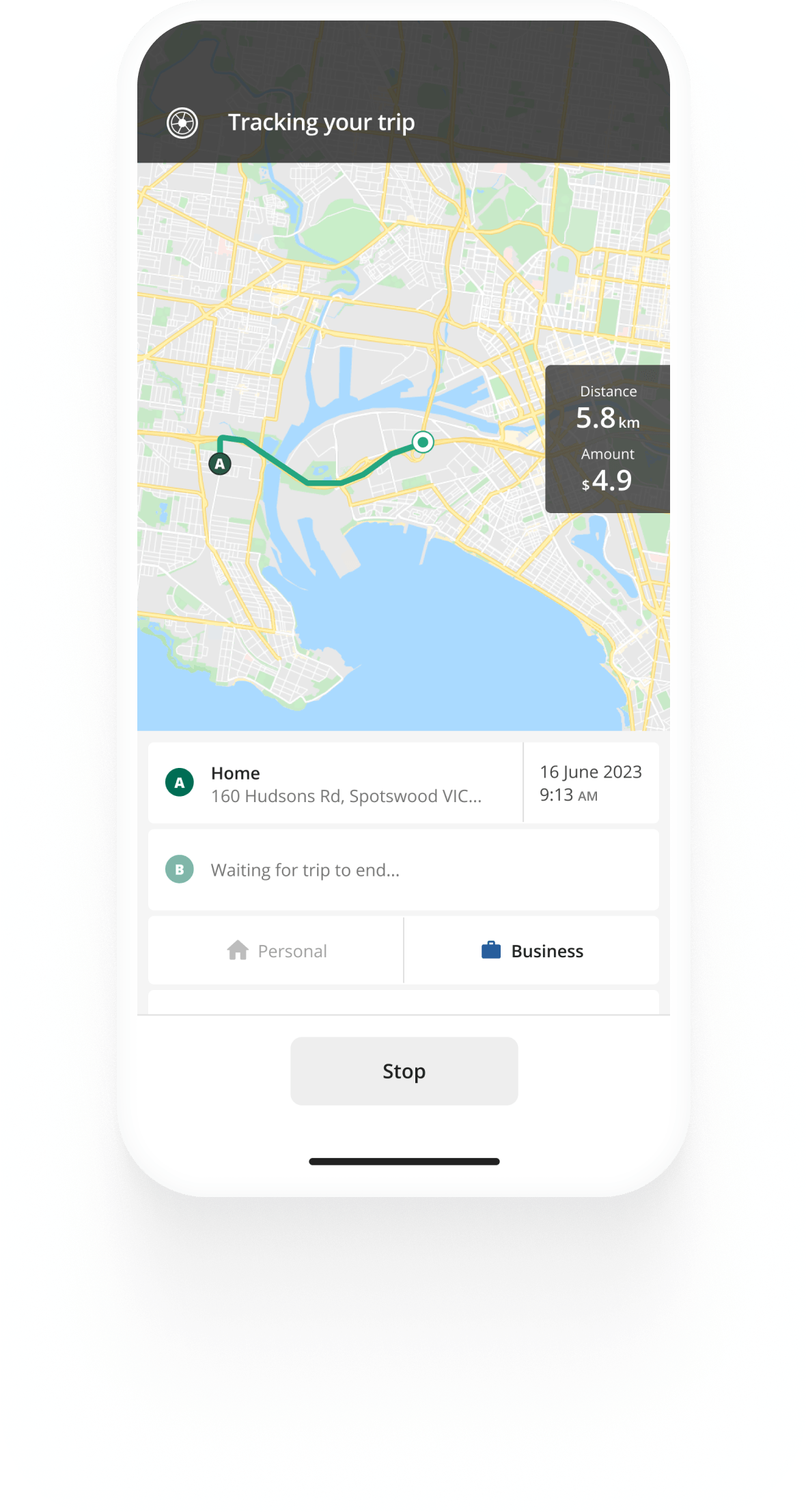Track mileage automatically
Get started
ATO cents per km rate 2024-25
The ATO has announced the latest cents per km rate for business driving: $0.88 per kilometre for the 2024-25 tax year, applicable from 1 July 2024 to 30 June 2025. The ATO has increased the rate with 3 cents compared to the last tax year.
| Tax year | Cents per km rate |
|---|---|
| 2024-25 | $0.88 per kilometre |
| 2023-24 | $0.85 per kilometre |


Kilometre tracking made easy
Trusted by millions of drivers
Automate your logbook Automate your logbook

Automatic mileage tracking and ATO-compliant reporting.
Get started for free Get started for freeThe cents per km rate for 2024-25 is increased
When revising the cents per km rate, the ATO considers the fixed and variable costs of running a vehicle each year. Australia has seen volatile fuel prices during the second part of 2023 and the beginning of 2024. Still, many other costs also influence the rate, including vehicle depreciation, road taxes, insurance, and repair costs.
The ATO has increased the per km rate each year in the past four years. For the new tax year, the tax authority has increased the per kilometre rate with 3 cents, up to 88 cents per km.
How the rate applies to you depending on your employment situation
If you are a sole trader or in a partnership
You can use the upcoming cents per km rate to claim a tax deduction for up to 5,000 business kilometres you’ve driven throughout the 2024-25 tax year. However, you won’t be able to claim other vehicle expenses, as the rate covers all your vehicle costs, including depreciation.
The ATO doesn't require written evidence when you claim business kilometres using the cents per km method, but they may ask you to show how you worked out your business kilometres, so we recommend keeping a log book. Find out the specific tax rules you need to follow when claiming business kilometres in our guide for self-employed people who claim car expense deductions.
If you are an employee
You can receive reimbursement for your business kilometres from your employer. While it’s common to use the official ATO rate, employers are not required to do so—they can choose to reimburse you at a higher or lower rate than the ATO cents per km rate.
If you do not receive reimbursement for your business kilometres, you can claim a deduction at tax time. Using the new cents per km rate, you can claim up to 5,000 business kilometres for the 2024-25 tax year. You are not required to keep records of the kilometres you’ve driven, but the ATO may ask you to show how you worked out your cents per km claim. Due to this, we recommend you keep a log book of your business driving throughout the year.
You can read up on reimbursements and car expenses deductions for employees in our dedicated guide.
If you drive over 5,000 business kilometres
Consider using the ATO's logbook method if you drive more than 5,000 km for business purposes throughout the tax year. This method allows you to claim all your actual car expenses and doesn’t have a business kilometre limit. It can be used by sole traders, partnerships, and employees who claim expenses for a car. Compare the cents per km method to the logbook method to see which may be better for your situation.

Tired of logging mileage by hand?
Effortless. ATO-compliant. Liberating.
Top posts
- Driversnote vs GOFAR
- Work-Related Travel Expenses for Employees
- Sole Trader Tax Deductions: An Essential Guide
Related posts
ATO Mileage Guide
Latest update: 23 June 2025 - 5 min read
Learn about the rules of reimbursing employees for their car expenses or deducting expenses as an employee or self-employed individual.
Driversnote vs GOFAR
Latest update: 2 February 2026 - 10 min read
Compare Driversnote and GOFAR in 2026. See which logbook app is best for ATO compliance, ease of use, privacy, and everyday driving needs.
Work-Related Travel Expenses for Employees
Latest update: 16 January 2026 - 2 min read
Learn about the ATO rules on work-related travel expenses and see if they are reimbursable or deductible at tax time in Australia.


